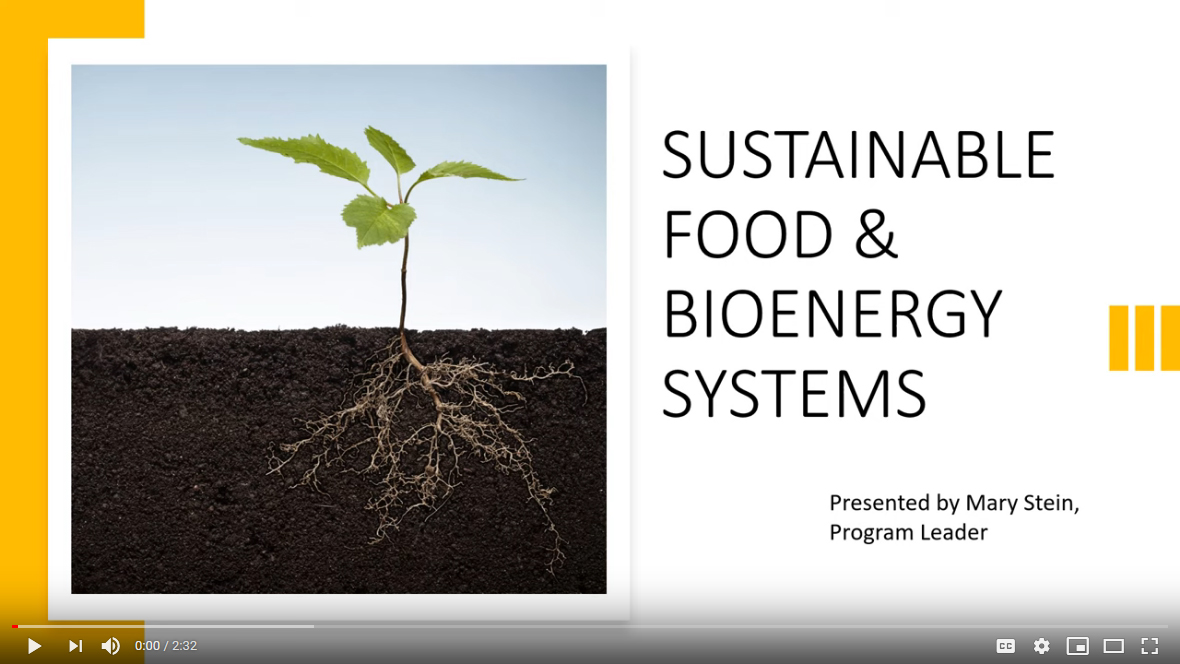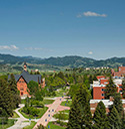Sustainable Food & Bioenergy Systems
The Sustainable Food and Bioenergy Systems (SFBS) program offers an interdisciplinary, hands-on curriculum focused on the ecological, cultural, economic, and health aspects of food and bioenergy systems from production through consumption. The degree plan is intended to prepare and motivate students as agents of change to address society’s most pressing food and bioenergy issues towards sustained environmental and human well-being. Students of the program are provided with broad interdisciplinary training founded on a core SFBS curriculum while gaining disciplinary training by selecting one of four program options housed in either the College of Agriculture, or the College of Education, Health and Human Development: (1) Sustainable Food Systems, (2) Agroecology, (3) Sustainable Crop Production and, (4) Sustainable Livestock Production. The SFBS program seeks to enhance students’ practical and critical thinking skills to approach food systems through service-based learning internships, hands-on production, training on research methods, independent and group projects, story-telling, and community engagement. Students must receive a grade of "C" or higher in all required courses as outlined in the major.
The sustainable food systems option in Health and Human Development draws from both
the physical and social sciences in the areas of food and nutrition, human development
and family science, plant sciences, environmental sciences, ecology, sociology, and
political science. Emphasis in this option is on health and consumer issues related
to food production and food systems. Students gain hands-on experience in culinary
fundamentals and management, organic gardening, and independent research projects.
Internships are designed to provide experience with food processing, food cooperative
management, alternative food distribution systems, and small business operations.
Having a better understanding of the interconnections among food production, food
policy, food security and health, helps prepare graduates capable of addressing interdisciplinary
food system problems such as obesity, food insecurity and poverty, food safety, and
loss of indigenous foods, among others.

Faculty



















